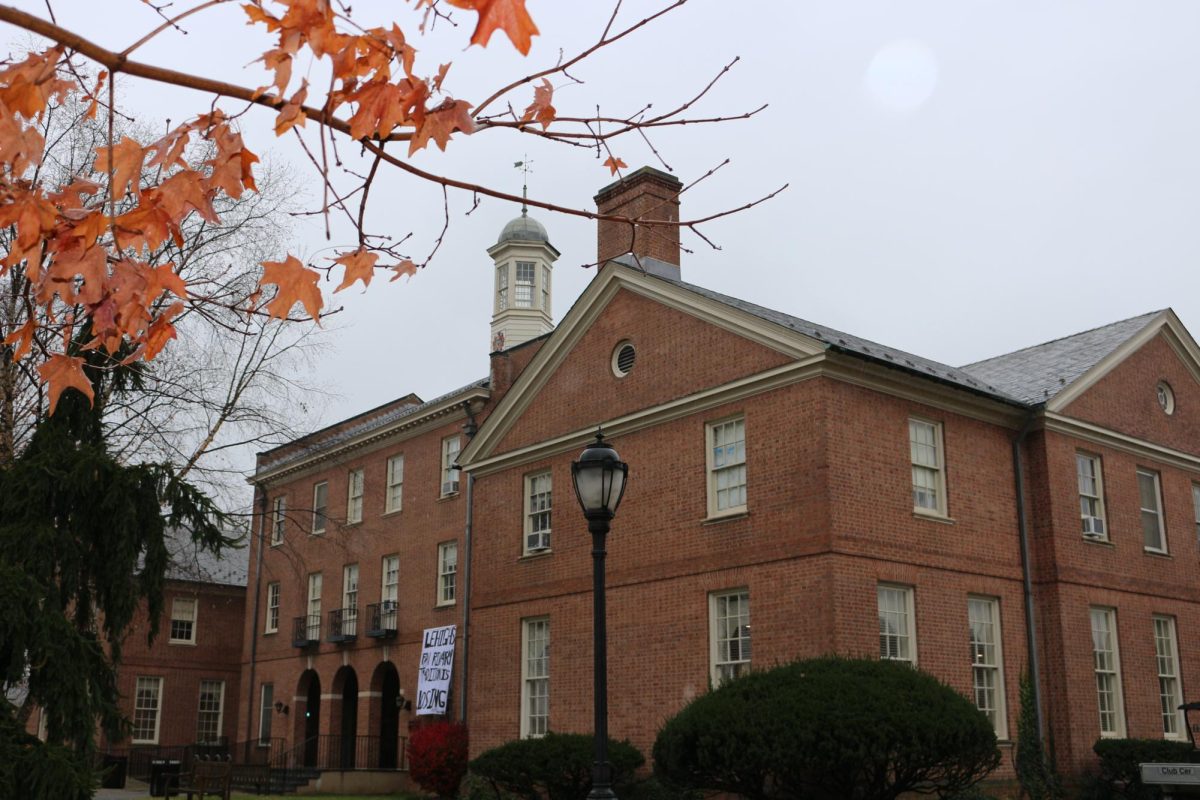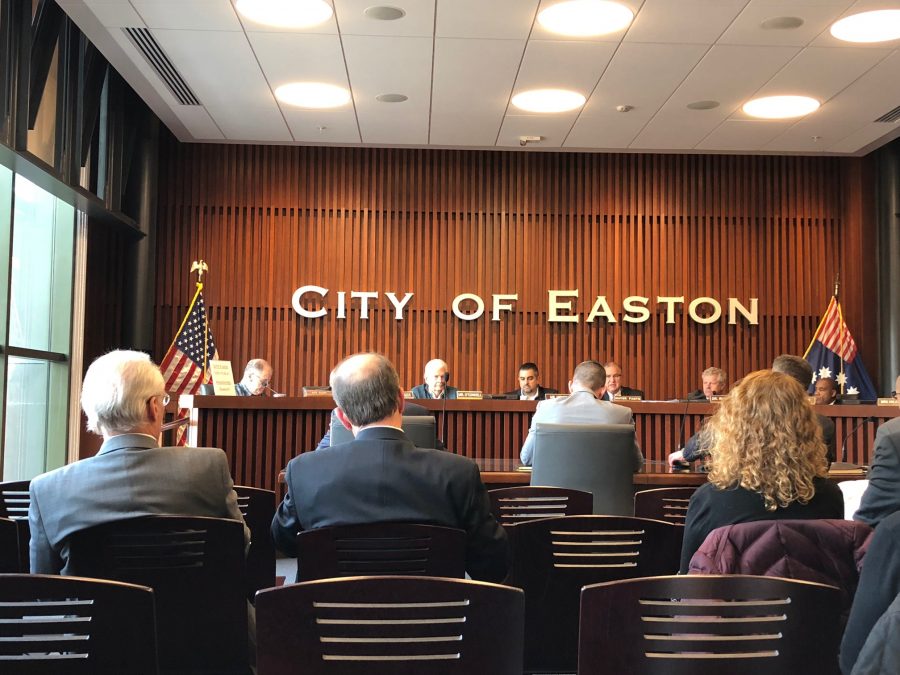The vote on the proposed zoning ordinance changes that would allow for the college to proceed with the long-awaited McCartney Dorm Project was not voted on at the Easton city council meeting this Wednesday after being tabled at the meeting in late March.
Mayor Sal Panto motioned to keep the zoning changes tabled, which were originally supposed to be voted on this week. Instead, Stephen Norowski, the Director of Zoning for the city of Easton gave a presentation to the council members about the state of the project and the recent meetings between the city, residents and the college.
Per the recommendation of city councilman Ken Brown, Vice President of Finance and Administration Roger Demareski said the college has been meeting with the residents and the city in order to share concerns and hopefully reach a consensus.
Demareski said that he, President Alison Byerly, Panto, Brown, councilman Peter Melan and Norowski met with residents this past Sunday to go over the ordinance changes and discuss their reasoning.
“I think we got through about half or two-thirds of the proposed clarifications…[we went] through each one line by line and ask[ed] why you’re making this change,” Demareski said.
The group was set to meet again on Tuesday to finish going over the changes before the meeting on Wednesday.
While the revisions to the plans will not go back before the Lehigh Valley Planning Commission, they will go before the Easton Planning Commission on their meeting in the first week of May. From there, the plans are set to go back before city council for a final vote at their first meeting in May.
Before the Easton Planning Commission meeting, revised bills 13 and 14 to the zoning ordinance, and the revised parking amendments for that zone, will go before city council on April 25. The revised parking amendments were meant to address concerns from the residents and were distributed out to the audience of Wednesday’s city council meeting. Panto said, however, they are still not finalized and could be changed before April 25.
The council will be given a “red line version” in which they will be able to see what has changed. This version will be available in city hall, the law library, newspapers and, in addition, “anybody can call up and request a copy.”
After the presentation, both Brown and Panto shared their positive opinions about the outcomes of the meetings. Brown felt there was “a good give and take on both sides.”
“I’d like to thank the residents who were at both of those meetings…Not everyone was a winner, but that’s what happens with good negotiations I guess,” Panto added.
Lafayette professor and city planner Paul Felder stood to speak on behalf of those “losers,” he said.
Felder said that he felt the meetings were somewhat productive, but residents were still disappointed. Additionally, he added that the “context sensitive design standards” Nowroski claimed were included back in the revisions were not “put back in” but changed entirely.
Kathryn Kelly ’19 contributed reporting.






















































































































